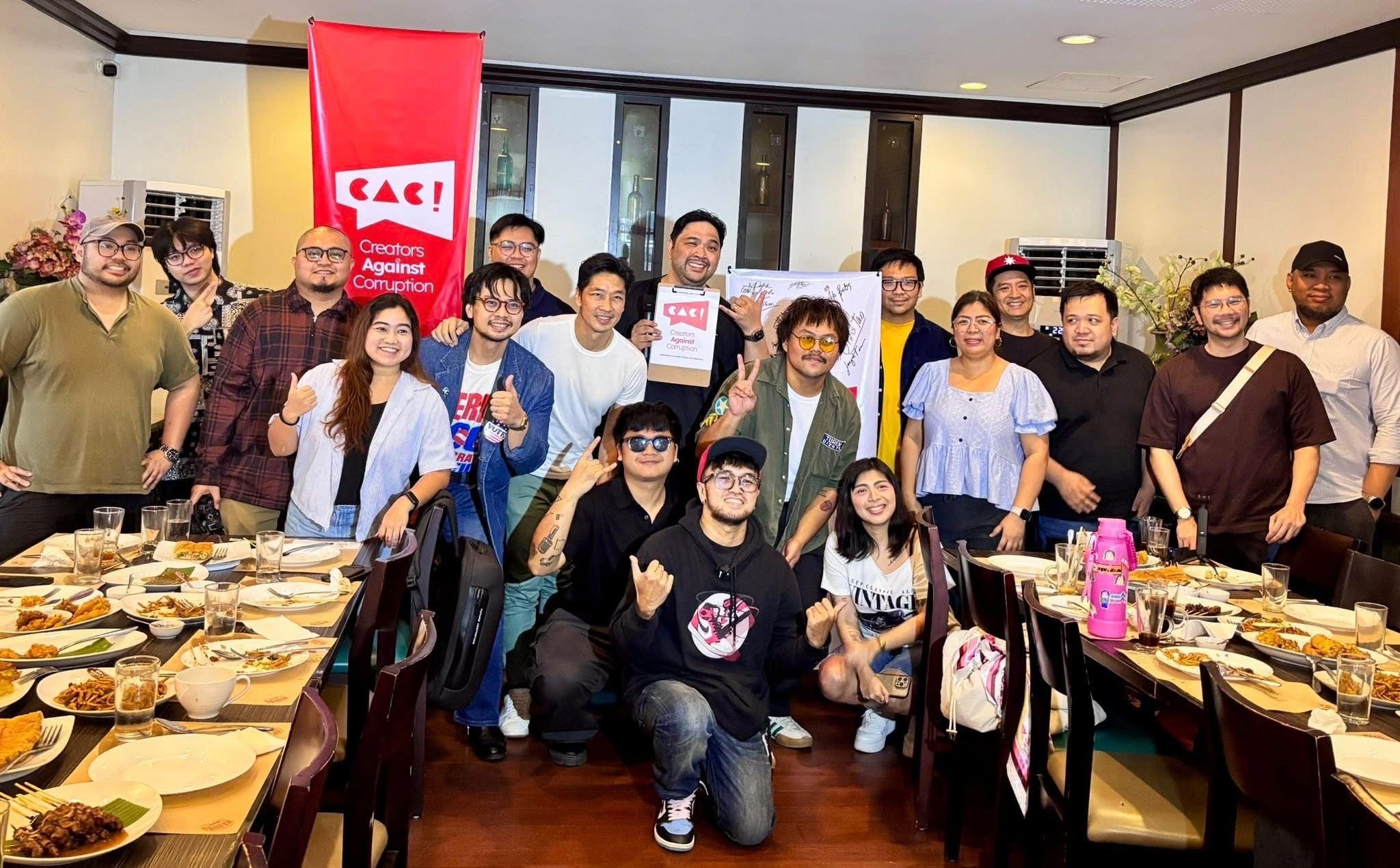By Sam Beltran
Copyright scmp

A new coalition of Filipino content creators has pledged to expose corruption and demand accountability, extending the digital crusade that has seen so-called nepo babies of the country’s elite publicly shamed for flaunting allegedly ill-gotten wealth.
The group – dubbed Creators Against Corruption (CAC) – formally launched in Pasig City on Thursday. Its members, who range from tech reviewers to horror storytellers, say their goal is to transform social media into a force for civic action amid growing public fury over the country’s flood control scandal.
“Now is not the time to be fence-sitting or on the sidelines,” said tech influencer and CAC lead convenor Carlo Ople during the coalition’s launch event. “We are called to be part of this battle against the raging corruption happening in the Philippines today.”
Ople told This Week in Asia that it had not been difficult to unite fellow creators, regardless of their niche.
“The creators we have are diverse [but] what ties us all together is our cause to fight corruption with our platforms,” he said, adding that the group of 20 was open to accepting members from all walks of life.
One of the sparks, he explained, came from a viral image presented during a recent Senate hearing – wads of cash piled on tables inside a Department of Public Works and Highways office, allegedly intended as kickbacks for lawmakers in exchange for lucrative construction contracts.
It was a stark visual of “how insanely bad the corruption was already in the Philippines” and served as “a rude awakening for a lot of Filipinos, including myself”, Ople said.
It spurred him to form the coalition and reach out to fellow content creators, who together have a collective reach of more than 1 million followers.
At the launch event, CAC unveiled a manifesto urging creators to wield their platforms as tools for truth and transparency, calling on influencers to speak out against those who betray public trust “regardless of their position or power”.
“A digital fire has been lit … our platforms, built on trust and community, have become something more: a megaphone for the people,” the statement read.
“We’ve watched as corruption erodes the foundations of our society, from the highest offices to the local halls of power.”
The coalition’s launch comes amid intensifying scrutiny of the Philippines’ multibillion-peso flood control programme, following revelations of widespread irregularities – including substandard infrastructure and “ghost” projects marked as completed despite no work on the ground.
Public outrage surged after Senate hearings featured explosive testimony from construction firm owners Pacifico and Sarah Discaya, who alleged they were coerced into paying kickbacks of up to 25 per cent to lawmakers and public works officials to win contracts. Their claims followed a government audit that found 545 billion pesos (US$9.5 billion) had been spent on nearly 10,000 flood control projects since 2022.
Major protests are being planned for Sunday, with tens of thousands expected to attend.
However, Ople sees the movement going beyond the present anger at these flood control projects.
“Our goal is to create a sustained, ‘always-on’ movement against corruption, rather than a one-off campaign,” he told This Week in Asia.
“We will achieve this by having a sustained spotlight on ongoing investigations, creating educational content to expound on the issues, amplifying [the] voices of those who are frustrated and affected, and mobilising people into action through our collective reach and platforms.”
This includes social media support for Sunday’s protests to extend the reach of these demonstrations, and the launch of a “Creator Caravan”, a series of nationwide workshops to empower and equip young creators to “have more values and integrity” in the industry, and teach them how to fact-check their content.
The group will also push for legislation to tackle corruption, such as an expanded Freedom of Information bill.
‘The great equaliser’
Amid calls by President Ferdinand Marcos Jnr to conduct lifestyle checks on government officials, online communities have emerged to “corrupt-shame” the kin of those being investigated, compiling social media posts that flaunt their lavish lifestyles.
One prominent example is Claudine Co, who is known for posting ostentatious displays of her lifestyle, including the prices of her luxury purchases, on social media. Her father owns Hi-Tone Construction & Development Corporation, one of the 15 contractors named in the Marcos-ordered investigation.
Co is also the niece of Congressman Zaldy Co, who was named as a co-founder of Sunwest Incorporated, another construction firm that appeared on Marcos’ list. The content creator has since deactivated her social media pages amid the backlash.
“The involvement of certain influencers in controversies surrounding ill-gotten wealth from flood control projects underscores precisely why it is critical for other personalities in the content creation space to speak up. It highlights the disturbing trend of influencers being used to normalise or flaunt ill-gotten wealth,” Ople said.
“When a public figure, who is supposed to be a role model, is linked to corruption, it can erode public trust in both the government and the content creation industry itself. It is crucial for us to reclaim this space and show that influencers can and should be a force for good.”
Fellow CAC member Marc Gamboa, who runs the political content channel Models of Manila, echoes the sentiment. He said he joined the movement to help creators “just starting to find their voice in this fight against corruption”.
“Some of the top content creators in the country who were silent before are now starting to speak up after seeing the severity of our corruption problem,” he told This Week in Asia. “I believe that we could make a bigger difference if we band together as a group instead of just taking this fight on individually.”
Academics say content creators play a key role in shaping public opinion – but that platforms themselves must bear responsibility for the spread of misinformation.
“While fact-checking is important, it’s not enough,” said Samuel Cabbuag, an assistant professor of sociology at UP Diliman and a doctoral candidate at Hong Kong Baptist University.
“We need to hold social media platforms accountable for allowing disinformation and fake news to spread … a whole-of-society approach is important.”
Gamboa agrees that content creators have a vital role to play in the fight against disinformation.
“We want to give tools and share knowledge to our fellow creators in spreading the truth about corruption in the country,” he said, adding that the group planned to “make as much impact as possible” by organising events such as seminars and rallies.
“Social media is the great equaliser for people fed up with the abuses of government […] more people are seeing through the BS and standing up against these corrupt politicians,” he said.
“The more content creators join the fight, the more powerful we become in exposing and shaming these corrupt players stealing billions of pesos from the government. This is a fight we must win for the future of our country.”



